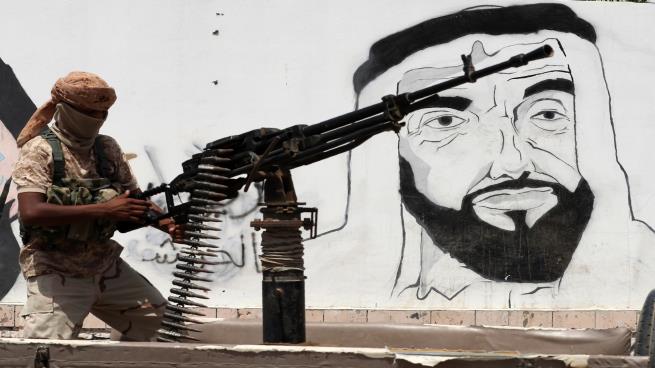Amnesty International organized a demonstration in Paris to protest against Saudi Arabia and the UAE’s French arms sales.
During the demonstration, Amnesty called on the French authorities to “prohibit the export of arms” to the two countries, against the background of their “human rights violations in Yemen.”
The demonstrators carried banners, which included expressions protesting France’s position on the Yemen war, including “French hypocrisy” and “Yemen can not wait.”
The organization’s branch in France indicated, on its website, that it will continue organizing protests every Thursday until March 25th.
He added that these demonstrations “are part of a campaign to mark the passage of 6 years since the (beginning) of the conflict in Yemen and to highlight France’s complicity in the worst humanitarian crisis in the world.”
Amnesty stated that the weekly demonstrations aim to raise awareness among the general public “about the dangers of French arms sales and the impunity surrounding them.”
The organization considered that France “risks using its war equipment against civilians”, through the continued sales of weapons to Riyadh and Abu Dhabi.
Many French parliamentarians have previously called for “an investigation into French arms sales to participants in the Yemen war.”
However, the French authorities did not heed that call and did not suspend its arms exports to Riyadh and Abu Dhabi.
The Foreign Affairs Committee of the French National Assembly (First Chamber of Parliament) launched a fact-finding mission on arms exports control.
Last November, the mission presented its report to the National Assembly, calling for parliamentary oversight over French arms sales.
And recently, Amnesty International called on Britain and France to suspend the sale of arms deals to both the UAE and Saudi Arabia.
The organization’s call came against the backdrop of President Joe Biden’s decision to temporarily suspend arms sales to Saudi Arabia and the United Arab Emirates.
Philip Nassif, Director of Advocacy Program for the Middle East and North Africa at Amnesty International USA, said Biden’s decision “represents a good relief in contrast to one chapter of disgraceful history.”
“Nearly six years of conflict in Yemen, fueled by irresponsible arms transfers, have left 14 million Yemenis in dire need of humanitarian assistance,” Nassif said.
“The suspension of arms sales by the United States is a positive step,” he added.
He stressed that he is increasing pressure on European countries, most notably the United Kingdom and France.
The international human rights defender stressed that European countries should stop fueling human misery in Yemen.
“For years, we have been warning Western countries that they risk complicity in war crimes because they continue to enable the Saudi and Emirati-led coalition to supply it with weapons,” he said.
“The Biden administration finally acknowledges the disastrous effects of these continuing sales,” he added.
“Other countries are ashamed that still ignore the enormous evidence of potential war crimes that Yemenis, the United Nations and human rights organizations have collected over the past six years,” he said.
Since 2015, the coalition forces led by Saudi Arabia and the United Arab Emirates have carried out dozens of indiscriminate and disproportionate airstrikes.
It has targeted civilians and civilian objects, hitting homes, schools, hospitals, markets, mosques, weddings and funerals.
Amnesty International has documented 40 coalition airstrikes that appear to violate international humanitarian law, many of which amount to war crimes.
As a result, more than 500 people were killed, and 400 civilians were wounded.
About the UAE, Amnesty International has gathered ample evidence indicating that UAE forces in Yemen do not only use weapons.
Instead, they are also transferred to unaccountable militias, some of which are accused of war crimes.



